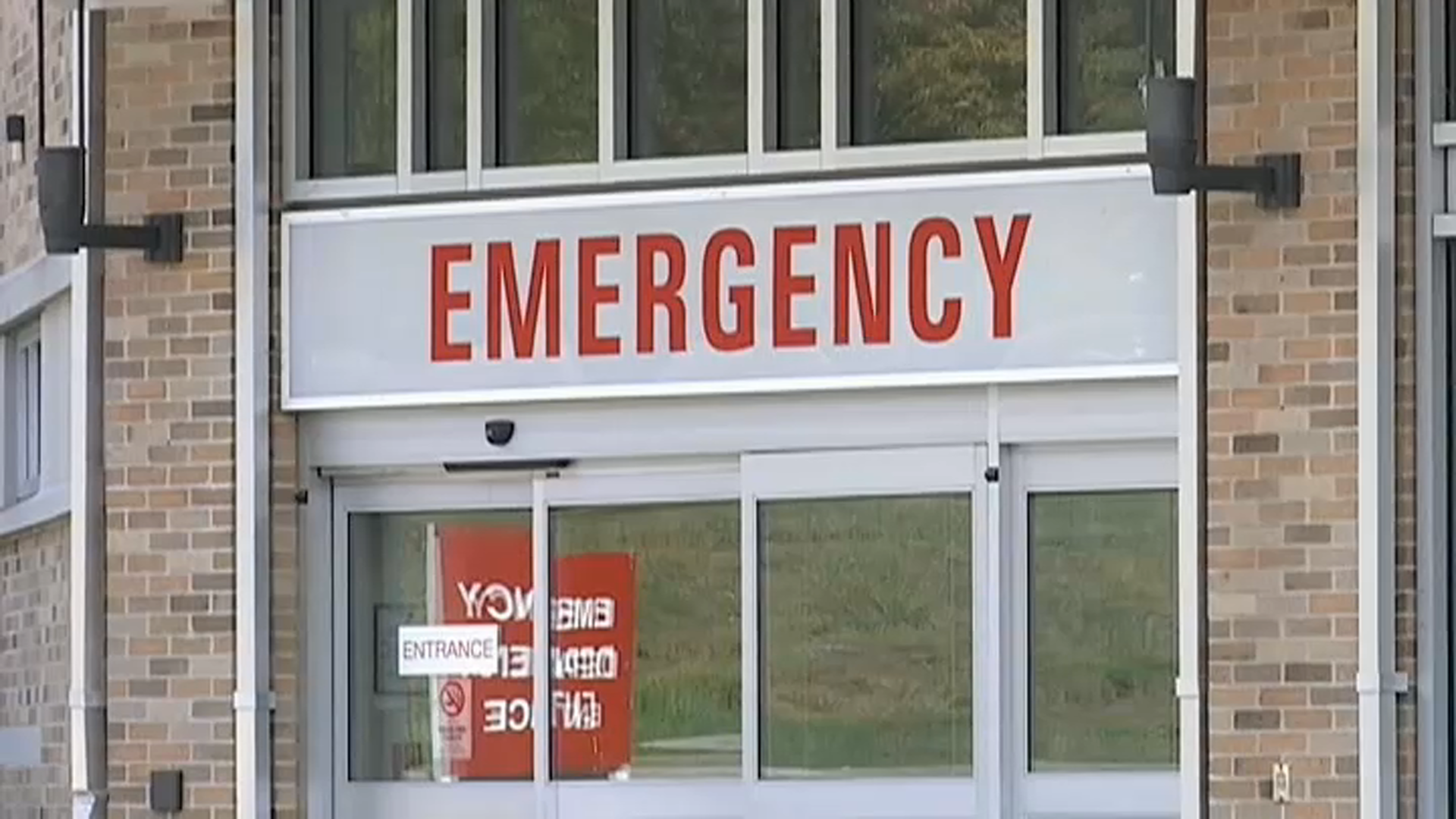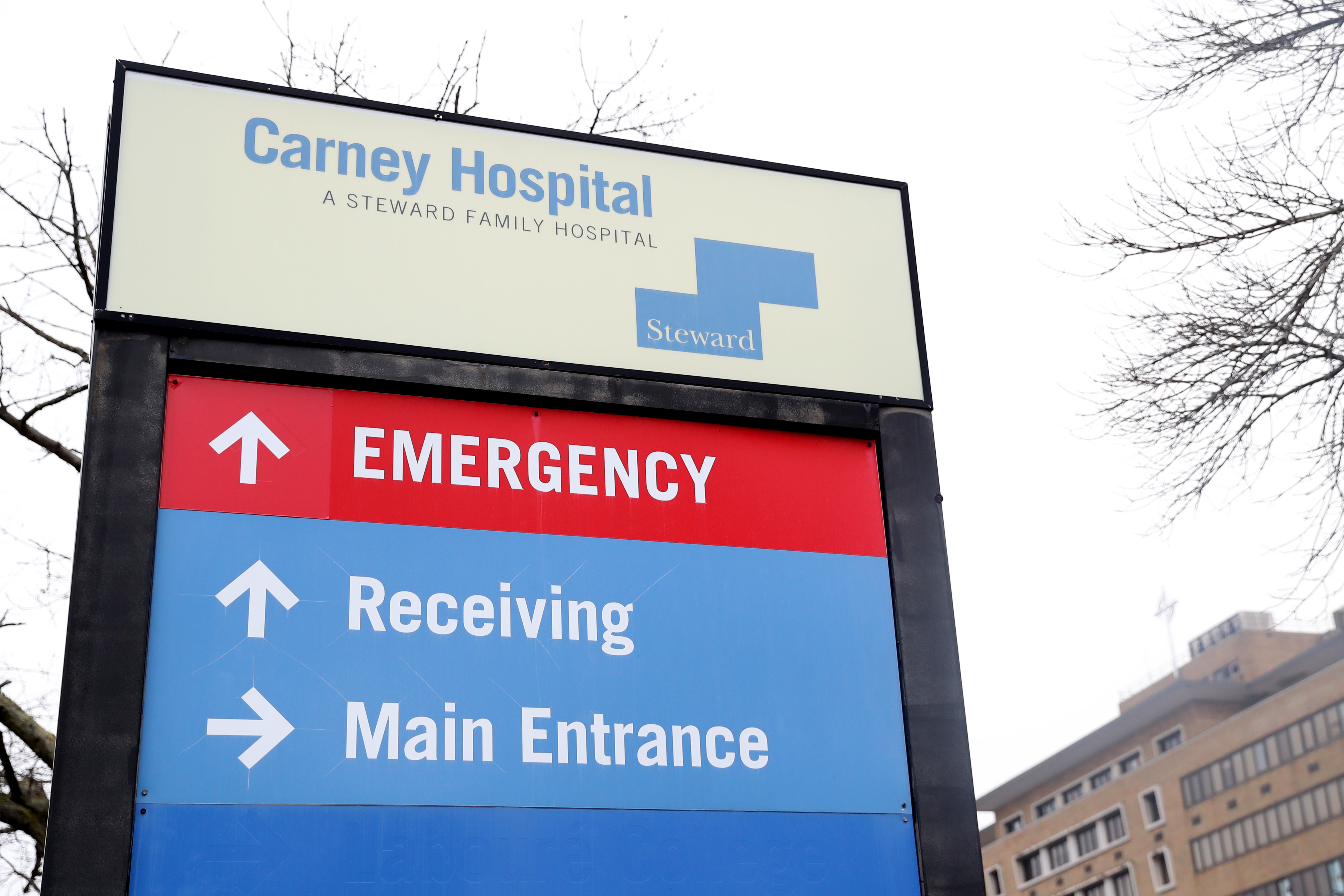
A sweeping new hospital oversight and industry reform bill is on the move atop Beacon Hill, representing what aides to House Speaker Ron Mariano view as the most significant health care cost control legislation in more than a decade.
The Legislature's Health Care Financing Committee on Tuesday moved to advance a redrafted, 97-page proposal that combines lessons learned from the Steward Health Care crisis, major changes to how state regulators work to contain health care spending, and new tools to deal with facility expansions and closures.
WATCH ANYTIME FOR FREE
>Stream NBC10 Boston news for free, 24/7, wherever you are. |
Mariano already declared his support for the measure, and a version of it will likely reach the House floor for a vote in the coming months, adding yet another weighty, complicated topic to an already-packed agenda as the Legislature races toward a July 31 deadline to complete major business for the year.
However, it's not clear what kind of a response the bill will elicit in the Senate, whose top Democrats for years have had their focus more trained on reining in prescription drug prices.
Get updates on what's happening in Boston to your inbox. Sign up for our >News Headlines newsletter.
"This legislation focuses on restoring stability to the health care system, and on bolstering accountability within the industry, with the ultimate goal of ensuring that everyone in Massachusetts has access to quality, affordable health care," Mariano said in a statement to the News Service. "To achieve those goals, this bill makes important updates to how we regulate and monitor the health care market, informed by the Steward Health Care crisis, but also by the bigger problems in a sector that has never fully recovered from the pandemic."
Officials in Mariano's office pitched the wide-ranging bill as the biggest effort to contain health care costs since the 2012 law that established the Health Policy Commission, the Center for Health Information and Analysis and an annual benchmark representing a goal for spending growth.
The legislation also serves as a de facto acknowledgement that the existing regulatory and analytical structure has not been sufficiently equipped to keep cost and spending increases within reasonable limits, putting patients across the state under financial pressure as many providers face strain of their own.
Those conditions existed before upheaval at the for-profit, private equity-backed Steward Health Care exploded into public view this year, and the expanded committee bill takes into account the crisis that has taken center stage.
The Steward-inspired changes are mostly forward-looking, aiming to prevent similar problems from emerging in the future, and would not immediately change the arc of the current upheaval, Mariano's office said.
Acute care hospitals would be required to own the land on which their facilities stand to acquire state licensure, according to a committee-produced summary of the bill.
That's a contrast from the situation at Steward, which in 2016 sold its real estate to Medical Properties Trust, a real estate investment trust, and now leases back the hospital properties. The maneuver appears to have saddled hospitals with a burden they are struggling to manage: in January, Medical Properties Trust said Steward owed it about $50 million in unpaid rent.
More on Steward Health Care
Hospitals licensed on or before April 1, 2024 -- including Steward's hospitals -- would be exempt from the new requirement.
The bill would also effectively require creditors and vendors to notify the Department of Public Health 60 days before repossessing medical or surgical equipment, and would void any contracts with providers that allow for any repossession more quickly.
That provision, too, is a direct response to Steward. In January, The Boston Globe reported about the case of Sungida Rashid, a 39-year-old new mother who died after doctors at St. Elizabeth's Medical Center -- a Steward hospital -- could not use an embolism coil to treat her internal bleeding because it had been repossessed over unpaid bills weeks earlier.
Another section would significantly strengthen data-reporting requirements and consequences, an area where Steward for years has allegedly been failing to comply with -- and fighting in court against -- existing law.
Hospitals would need to disclose audited financial statements about out-of-state operations for their parent organizations, certain private equity investors, real estate investment trusts, and management services organizations.
They would also face much higher fines for falling short of those requirements, boosted from $1,000 per violation to $25,000 per violation with no maximum cap. The bill additionally empowers DPH to block certain licensure or expansion approval against a system that has failed to submit appropriate financial data to the state.
But Steward-related changes are just one category of reforms among several in the mix.
Get updates on what's happening in Boston to your inbox. Sign up for our News Headlines newsletter.
The redrafted legislation would also overhaul health care cost containment and management at the state level, including by changing the existing one-year benchmark to a three-year cycle. Mariano's office said a longer time period would better account for dips and spikes in spending by individual entities.
In recent years, the rate of total health care expenditure growth has exceeded the target rate set by regulators, who have been pressing lawmakers to give them new tools to better contain the trend.
Other sections of the bill explicitly subject "payers" such as health insurance plans to both HPC scrutiny and performance improvement plans, the primary tool by which the independent agency can order an industry player to rein in its spending, and gradually require insurers to pay the same rates to all in-network providers.
The bill would expand the performance improvement plan process by empowering the HPC to instruct entities on how to cut their costs, rather than leave it to hospitals and systems to produce their own ideas for financial controls.
Almost every corner of the health care world is under substantial pressure at the moment. Patients are increasingly facing unaffordable costs that in some cases cause them to delay care, providers are struggling with tight margins and staffing shortages exacerbated by the pandemic, and different industry facets all have their own ideas about how to navigate the rocky terrain.
Some parts of the new bill take aim at protecting Bay Staters from loss of services and reinforcing smaller community hospitals against threatening expansions by larger academic medical centers, long a priority of Mariano's.
The legislation would codify a requirement that any entity seeking to open an ambulatory surgery center in an area already served by an independent community hospital must first secure the support of that preexisting facility.
It would also bring the HPC into the fold when a hospital or provider moves to shutter an essential service. Under existing law, a provider needs to notify DPH of a planned closure, describe the anticipated impacts on patients, and produce a plan to guarantee access to similar services elsewhere.
The bill would task HPC regulators with producing their own analysis of the impacts from an essential service closure, effectively ensuring that the conclusions come from independent state experts rather than from the organization pushing for the closure.
The Health Care Financing Committee gave members until 9 p.m. Tuesday to weigh in on the proposal. Like all other joint committees, representatives hold a majority of seats, so it's likely the speaker's support will allow the measure to advance with a favorable recommendation regardless of how senators feel.
Mariano's office did not put a specific timeline on action Tuesday. The speaker himself said last week that health care legislation and a redraft of Gov. Maura Healey's similarly dense housing bond and policy bill are high on his to-do list.
A spokesperson for Senate President Karen Spilka neither committed to bringing the Health Care Financing Committee bill forward nor shot it down, but signaled Tuesday that the Ashland Democrat is weighing similar topics.
"Under the leadership of Senate Chair Cindy Friedman, the Senate has taken steps to understand the effects of private equity in healthcare in order to keep up with the changing healthcare marketplace in the hopes of preventing another situation like the Steward crisis," the spokesperson said. "The Senate is also looking at possibly changing or expanding the role of the Health Policy Commission as it has been more than a decade since this has been done. As with all bills that the Senate receives from the House, the Senate President and members will need time to review the bill and solicit feedback."
Legislative leaders have agreed in the past couple of terms to bills expanding access to mental health care services, protecting reproductive- and gender-related care, boosting insurance coverage of telehealth and other topics.
Yet they have also failed to achieve consensus on some of their top priorities in the arena. The House last term approved a hospital expansion oversight bill -- which formed a narrow foundation for the latest measure on the move -- that never received a vote in the Senate, while Senate Democrats have had their attention on prescription drug pricing reforms that have failed to gain momentum in the House.




